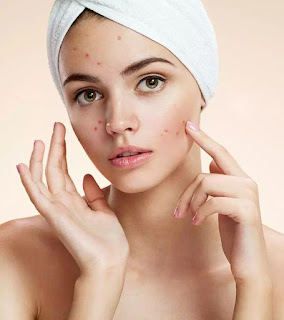how to cure acne problems
Curing acne requires a multifaceted approach that addresses the underlying causes of acne while also focusing on proper skincare and lifestyle habits. Here are some steps you can take to effectively manage and potentially cure acne problems:
Keep your skin clean:
Wash your face twice a day with a gentle cleanser to remove excess oil, dirt, and impurities. Avoid harsh scrubbing, as it can irritate the skin and worsen acne.
Use non-comedogenic skincare products: Choose skincare and makeup products labeled as non-comedogenic, meaning they won't clog pores. Look for ingredients like salicylic acid or benzoyl peroxide, which can help to unclog pores and reduce acne.
Moisturize: Even if you have oily or acne-prone skin, it's important to use a lightweight, oil-free moisturizer to keep your skin hydrated and prevent it from overproducing oil.
Avoid touching your face: Touching your face can transfer bacteria and oil from your hands to your skin, leading to breakouts. Try to avoid touching your face unnecessarily, and always wash your hands before applying skincare products.
Manage stress: Stress can exacerbate acne by triggering hormonal changes that increase oil production. Practice stress-reducing techniques such as mindfulness, meditation, yoga, or deep breathing exercises to help manage stress levels.
Eat a healthy diet: While diet alone may not be the sole cause of acne, certain foods may exacerbate breakouts in some individuals. Focus on eating a balanced diet rich in fruits, vegetables, whole grains, and lean proteins, and limit your intake of processed foods, sugary snacks, and dairy products, which are known to trigger acne in some people.
Stay hydrated: Drinking plenty of water helps to keep your skin hydrated and promotes overall skin health. Aim to drink at least 8 glasses of water per day.
Get enough sleep: Lack of sleep can disrupt hormone levels and contribute to acne breakouts. Aim for 7-9 hours of quality sleep each night to support your skin's natural healing processes.
Consider over-the-counter treatments: Over-the-counter acne treatments containing ingredients like benzoyl peroxide, salicylic acid, or sulfur can be effective for mild to moderate acne. Follow the instructions carefully and be patient, as it may take several weeks to see results.
Consult a dermatologist: If your acne is severe or persistent, it's important to seek professional help from a dermatologist. They can assess your skin condition, prescribe medications or topical treatments, and provide personalized advice on how to manage your acne effectively.
Remember that curing acne takes time and patience, and what works for one person may not work for another. It's essential to be consistent with your skincare routine and make lifestyle changes that support healthy skin.

Comments
Post a Comment